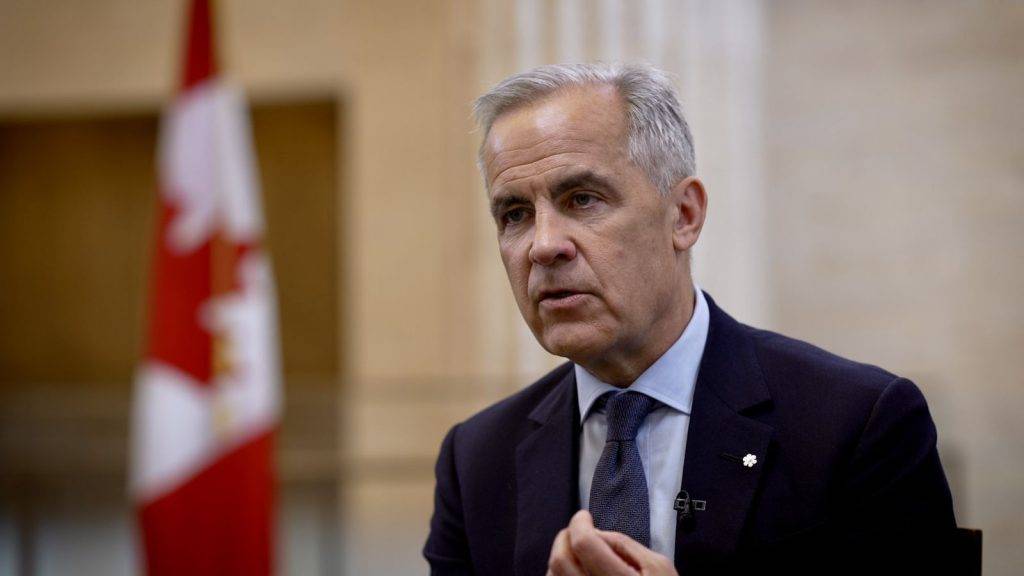Cliff Notes – Canadians not impressed by second UK state visit for Trump – Mark Carney
- Canadian Prime Minister Mark Carney expressed that Canadians were “not impressed” by the UK’s invitation to Donald Trump for a second state visit, as it undermines Canada’s sovereignty amid ongoing threats from the US president.
- Carney highlighted that his invitation to King Charles to open Canada’s parliament serves as a strong assertion of sovereignty, coinciding with increasing American pressures.
- Despite a recent Oval Office meeting that yielded constructive discussions, Carney remains cautious and plans for potential future adversities in the US-Canada relationship.
Canadians not impressed by second UK state visit for Trump – Mark Carney
Canadians “weren’t impressed” by the decision of the UK government to offer Donald Trump an unprecedented second state visit to the UK, the country’s prime minister told UK broadcaster Sky News.
Sir Keir Starmer handed the invitation to the US president during a visit to the Oval Office.
The newly elected Liberal leader Mark Carney said that the invitation “cut across clear messages” that the Canadian government was trying to send to the White House in response to their threats against Canada’s sovereignty.
“I think, to be frank, they [Canadians] weren’t impressed by that gesture… given the circumstance. It was at a time when we were being quite clear about the issues around sovereignty.”
It comes as the Canadian prime minister has invited the King, who is Canada’s head of state, to open its parliament later this month in a “clear message of sovereignty”.
It is the first time the sovereign has carried out this function in nearly 50 years and Mr Carney says it’s “not coincidental”.
“All issues around Canada’s sovereignty have been accentuated by the president. So no, it’s not coincidental, but it is also a reaffirming moment for Canadians.”
The former Bank of England governor was re-elected after a campaign fought on the promise of standing up to American threats to Canadian statehood. He had refused to speak to Mr Trump until Canadian sovereignty was respected.
It followed Mr Trump threatening to make Canada the 51st state of the US.
Mr Carney justified making his first trip after winning re-election to the White House by stating Mr Trump had changed his intentions to annex Canada from an “expectation to a desire”.
“He was expressing a desire. He’d shifted from the expectation to a desire. He was also coming from a place where he recognised that that wasn’t going to happen.
“Does he still muse about it? Perhaps. Is it ever going to happen? No. Never.”
The high-stakes meeting in the Oval Office was not confrontational, with Mr Carney praising the president’s approach as “very on top of the essence of a wide range of issues” and “able to identify the points of maximum leverage, both in a specific situation but also in a geopolitical situation”.
A King’s tension between allies
Fractured geopolitical relations have produced an interesting phenomenon: two Commonwealth nations both deploying their head of state, King Charles, to manage the vagaries of Donald Trump.
For Canada, and its new prime minister, Mark Carney, the King is being unveiled at the opening of Parliament in Ottawa later this month as an unequivocal spectacle and symbol of sovereignty.
For the UK, Sir Keir Starmer is positioning the monarch as a bridge and has proffered a personal invitation from King Charles to the president for an unprecedented second state visit in order to facilitate negotiations over trade and tariffs.
This instrumentalisation of the crown, which ordinarily transcends politics, has created tension between the historically close allies.
Canadians view the UK’s red carpet treatment of a leader who is openly threatening their sovereignty as a violation of Commonwealth solidarity, while the British seem to have no compunction in engaging in high-level realpolitik.
The episode is emblematic of how pervasive disruptive American influence is and how extreme measures taken to combat it can aggravate even the most enduring alliances.
Since the meeting, tensions between the two countries have abated.
Further negotiations on trade and security are expected soon.
Given the deep economic integration of the two nations, neither side expects a deal imminently, but both sides concur that constructive talks have led to progress on an agreement.
With greater goodwill between the two North American neighbours, Mr Carney also expressed optimism about Mr Trump’s efforts to broker peace between Ukraine and Russia.
The prime minister confirmed his view that the president was an “honest broker” and that his counterpart had been “helpful” in bringing momentum to a 30-day ceasefire between the warring nations.
Despite a reset in relations between the United States and Canada, Mr Carney remained circumspect.
His motto is: “Always plan for the worst.”
And to that end, nothing is being taken for granted: “We do plan for having no deal, we do plan for trouble in the security relationship. We do plan for the global trading system not being reassembled: that’s the way to approach this president.”


